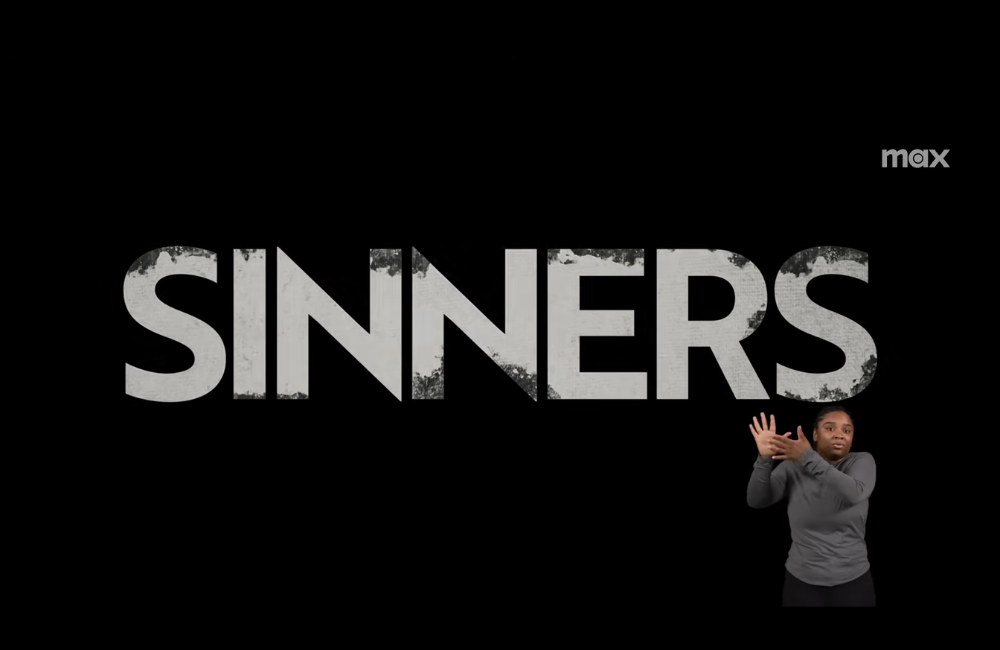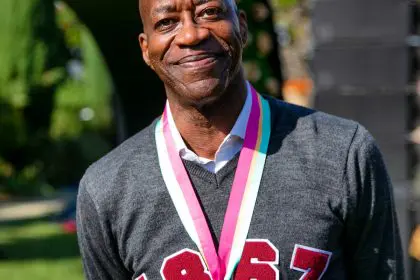When Max releases Sinners this Independence Day, the streaming platform will achieve something unprecedented in digital entertainment: the first major film to feature complete interpretation in Black American Sign Language. This groundbreaking accessibility initiative represents more than technological advancement — it signals a fundamental shift toward authentic cultural representation in mainstream media.
The film’s July 4 debut carries symbolic weight, arriving as the entertainment industry grapples with demands for greater inclusivity. For the Black Deaf community, Sinners offers something rarely seen: content delivered in their distinct linguistic tradition, complete with cultural nuances that standard American Sign Language often overlooks.
Understanding Black American Sign Language’s unique identity
Black American Sign Language emerged from a complex historical tapestry, developing within segregated educational institutions and communities that fostered its distinctive characteristics. Unlike conventional ASL, BASL employs expanded signing space, allowing for more fluid and expressive hand movements that reflect African American cultural patterns.
The dialect incorporates rhythmic elements reminiscent of Black oral traditions, featuring facial expressions and body language that convey meaning beyond literal translation. These subtle differences create a richer communicative experience, one that traditional ASL interpretation cannot fully capture.

BASL developed independently within Black Deaf communities, particularly in the South, where segregated schools created distinct educational environments. This separation, while born from discrimination, fostered unique linguistic innovations that persist today.
Warner Bros. discovery’s accessibility revolution
The decision to produce Sinners with BASL interpretation reflects Warner Bros. Discovery’s evolving understanding of accessibility as a multifaceted challenge. Naomi Waibel, the company’s Senior Vice President, emphasizes that accessibility in streaming cannot follow universal templates.
According to Waibel, culturally nuanced access enriches everyone’s viewing experience, representing a departure from traditional accommodation models that often treat accessibility as an afterthought rather than an integral design element.
The initiative required extensive collaboration between Warner Bros. Discovery’s accessibility team and BASL experts, ensuring authentic representation rather than mere translation. This process involved cultural consultants who helped shape the interpretation’s tone and delivery style.
The creative team behind the interpretation
Nakia Smith, the project’s lead interpreter, brings extensive experience in BASL performance to Sinners. Her background includes work with major Deaf community organizations and advocacy groups, providing her with deep understanding of BASL’s cultural significance.
Director Rosa Lee Timm oversees the interpretation’s creative direction, ensuring that visual storytelling elements complement the linguistic presentation. Timm’s previous work in accessible media production has earned recognition within disability advocacy circles.
Their collaboration reflects a broader industry trend toward hiring cultural insiders for representation projects, rather than relying on external consultants unfamiliar with community dynamics. This approach ensures authenticity while providing career opportunities for underrepresented professionals.
Industry impact and future implications
Sinners‘ BASL interpretation could establish new standards for streaming accessibility, particularly as platforms compete for diverse audiences. The project’s success may influence other major studios to invest in specialized accessibility features, potentially creating a cascade effect across the industry.
Market research indicates growing demand for culturally specific accessibility options, with younger audiences particularly interested in authentic representation. This demographic shift suggests that accessibility innovations like BASL interpretation may become competitive advantages rather than compliance requirements.
The film’s reception will likely influence Warner Bros. Discovery’s future accessibility investments, potentially leading to expanded BASL programming across their catalog. Success could also inspire similar initiatives at competing platforms, broadening access for underserved communities.
Cultural significance beyond entertainment
The Sinners premiere transcends entertainment value, offering the Black Deaf community unprecedented mainstream visibility. For many viewers, this marks the first time their linguistic identity has been acknowledged in major media productions.
This recognition carries particular weight given the historical marginalization of Black Deaf voices within both Black and Deaf communities. BASL interpretation provides a bridge between these identities, allowing viewers to engage with content that honors their complete cultural experience.
A landmark moment in media history
The introduction of BASL interpretation in mainstream media represents a significant step toward inclusivity. Max’s groundbreaking initiative sets a precedent for other streaming platforms, demonstrating that accessibility improvements can honor cultural distinctions while expanding audience reach.
As the entertainment industry continues evolving, Sinners serves as a powerful reminder that meaningful representation requires understanding the nuanced needs of diverse communities. This historic premiere not only entertains but educates, inspiring conversations about the future of inclusive media.
















